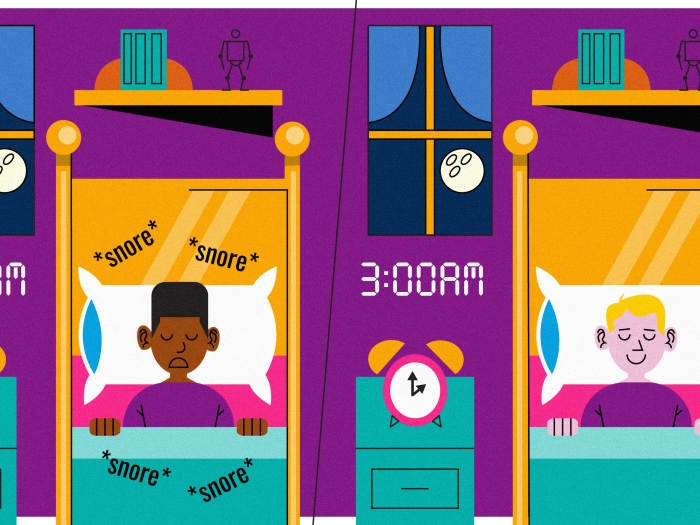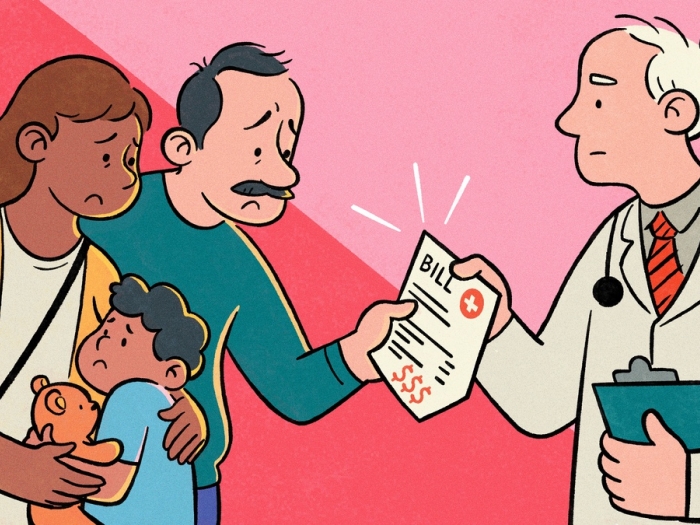Recent research shows nearly all patients diagnosed with chronic sinusitis by a nonspecialist don’t really have it. Here are the criteria physicians should know.
7:00 AM
Author |

A recent University of Michigan study showed nonspecialists are drastically overdiagnosing chronic sinusitis, leading to incorrect, and possibly unnecessary, treatment.
MORE FROM THE LAB: Subscribe to our weekly newsletter
Melissa Pynnonen, M.D., senior author and associate professor of otolaryngology, notes that the general population may also misunderstand the condition. While 15 percent of the population self-reports chronic sinusitis, only an estimated 2 to 3 percent of doctors' visits are for the disease, investigations into the condition's prevalence have found. Data from the University of Michigan suggest it is actually even more rare.
Pynnonen discusses the recent U-M work and explains why education is key to reducing overdiagnosis below.
What did your research find?
Pynnonen: We looked at 114 people newly diagnosed with chronic sinusitis. More than 99 percent of those patients did not actually have it when their diagnosis came from the emergency department or their primary care physician. Primary care and emergency physicians were less likely to follow the criteria that ear, nose and throat doctors use to make a correct diagnosis.
What are the symptoms of chronic sinusitis?
Pynnonen: We look for four specific things:
-
Thick yellow or green nasal drainage
-
Facial fullness or pressure
-
Inability to breathe through the nose
-
Decreased sense of smell and taste
Beyond the list of symptoms, it's important to note that patients typically have more than one, and a diagnosis requires at least two symptoms that last more than three months. There's also likely going to be evidence of inflammation on an exam, endoscopy or CT scan.
If 99 percent of the patients don't have chronic sinusitis, what could they have instead?
Pynnonen: Many patients incorrectly diagnosed actually have repeated viral infections — we're talking the common cold. Even if a cold returns within the three-month window, that's not the same as symptoms persisting for three months straight. Allergies, migraine/tension headaches or a deviated nasal septum could be other culprits.
Some patients may indeed have sinusitis, but it's acute rather than chronic. That means the treatment should be less intense, perhaps not even requiring antibiotics. Chronic sinusitis, though, may need antibiotics, oral steroids and/or allergy treatment.
What should non-ENT healthcare providers know about this research?
Pynnonen: It's important to consider other causes of recurrent or persistent nasal symptoms or facial pain, instead of jumping to a chronic sinusitis diagnosis. As I mention above, other conditions can cause similar symptoms.
SEE ALSO: Can Nutritional Supplements Impact Genetic Hearing Loss?
Nonspecialists may also call the symptoms chronic if they last longer than they would have expected, but otolaryngologists are more careful with a "chronic" diagnosis. It must be persistent over time, and in the case of chronic sinusitis, that's three months straight.
You recently served as senior author on a new study — separate from the previously mentioned paper — to compare the U-M Health System to national chronic sinusitis data. What did this find?
Pynnonen: We found in our Laryngoscope Investigative Otolaryngology study a much lower rate of chronic sinusitis at U-M compared to national data, so that means we're diagnosing it less frequently than other community institutions. But even though it's found less frequently, we already know the majority of patients with a diagnosis don't actually have it. We concluded in this new study that chronic sinusitis diagnosed outside of an academic institution or specialty clinic may not hold up to diagnostic scrutiny. This confirms my team's belief that we need to further educate primary care and emergency medicine providers about the condition.

Explore a variety of health care news & stories by visiting the Health Lab home page for more articles.

Department of Communication at Michigan Medicine
Want top health & research news weekly? Sign up for Health Lab’s newsletters today!





